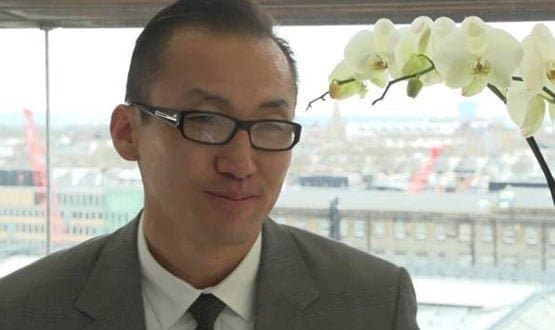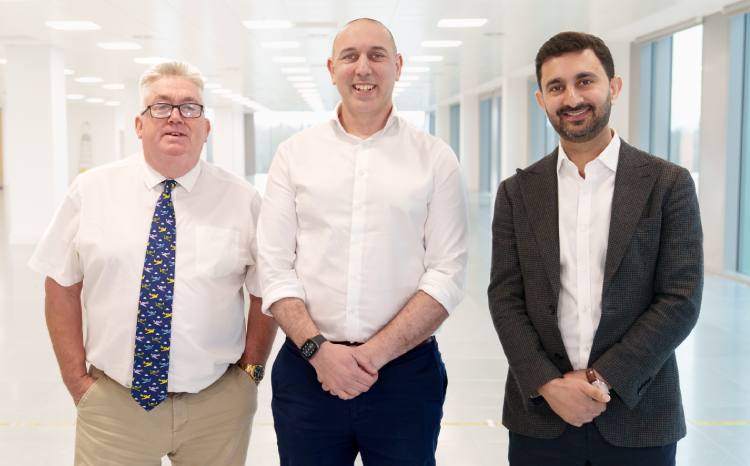IT’s a Mercy
- 26 April 2013

The way Dr Andrew Cha tells it, his entry into the world of healthcare technology and informatics was an entirely accidental one.
Shortly after joining Mercy Hospital and Medical Center as a consultant, he was walking down a corridor when someone grabbed him and offered him a free lunch.
There is of course no such thing as a free lunch, and so the infectious diseases specialist was soon being pumped for his thoughts on the hospital’s prospective electronic patient record system.
“I really didn’t want to be involved in another committee, so I was trying to be as obnoxious as possible,” Dr Cha says with a grin.
“I really gave my uncensored opinion of what they were doing in the design process. My thought was that if I could be annoying enough, I wouldn’t have to worry about this – I could just take my free lunch and leave.
“And lo and behold, apparently at that juncture of the project, that’s exactly what they needed; they needed that honest opinion of what was making the design process be stagnant. So ever since then, I’ve been helping IT!”
Big bang EPR: ripping a plaster off a hairy leg
That fateful free lunch took place in 2008, when the 300-bed Chicago teaching hospital was preparing to launch its new Cerner electronic health record.
Dr Cha soon became the main clinical representative on the project. He says the goal at launch was fairly simple: “To get everybody electronic.”
He really does mean everybody. There was none of the pilot and gradual roll-out approach common in the NHS at Mercy. Instead, the launch was ‘big bang’ – the system went live across the entire hospital at more or less one moment in time.
That meant training 500 to 600 members of staff in a ten week period, many of whom were more than a little sceptical about the project.
“Initially, I think a lot of the physicians didn’t think we were going to succeed, so our classrooms were empty,” admits Dr Cha.
“And then as we got closer to the date – as they realised that this was really going to happen – they started coming so our classrooms filled up very quickly.”
The big bang launch is a concept which tends to send shivers down the spines of even the most battle-hardened UK healthcare professionals and IT experts. Asked why the NHS struggles so much with this – what it’s missing – Dr Cha offers a reassuring answer.
“I don’t think you’re missing anything,” he says calmly. “We’re on the South Side of Chicago [known as a poorer, more deprived area of the city] and we’re a hospital that doesn’t have a lot of money – we’re resource-limited in personnel and in finances. I guess if we can do it, anyone can do it.
“I think what it comes to is everybody just has to be on the same page,” he continues. “If the chief executive says it, then the board must say it; the executive people must agree with it. You just have to be uniform in your stance. You don’t want people to second guess you.”
And he says he would prefer a short struggle to the ‘death by pilot’ of which the NHS is often accused when it comes to IT.
“People always talk about ripping off that Band-Aid. I would argue that [launching an EPR] is probably ripping duct tape off of a very hairy leg. It is a painful process.
“However, I would much rather endure that short amount of pain than to try to endure three years. Because then you lose momentum, then you lose focus.”
Defusing situations
Nowadays, much of Dr Cha’s own focus is on healthcare informatics. He estimates that he spends about 60% to 70% of his week on health information technology – up from 30% at the beginning of the Cerner project, but down from the 100% of the go live period.
“Once we went live, I think my goal was to go back to my normal life!” he chuckles. “But it didn’t work out that way, so I had to juggle. It was slowly phasing the clinical informatics into my practice and now it’s pretty much predominantly clinical informatics.”
Dr Cha was formally appointed as Mercy’s chief medical information officer in July 2012, and sees much of his role as defusing situations.
“There are going to be times when some physicians may act out,” he says. “And they’re probably going to act out more to somebody who is non-physician, just because of the pecking order – they’re at a higher stature, in their mind.
“I think the role of CMIO, or the CCIO equivalent, would be try to defuse that situation. Talk as one colleague to another colleague, not in a threatening manner but say: ‘I know it’s a challenge, how can I help?’ Really defuse the situation before it escalates any further.”
That has often involved focusing on the clinical benefits technology can offer individual clinicians. Significantly, doctors were trained by specialty in the run-up to the launch of Mercy’s electronic health record.
“We basically broke them up into more workflow focused [groups] – not IT driven but clinical driven. So what does a surgeon do repetitively that somebody from internal medicine is not going to do? We concentrated on that type of teaching method. And it worked.”
Significant too is the name of the system, decided on by a staff vote. “The winning acronym was MAPS – Mercy’s Advancement for Patient Safety, which was about bringing that whole concept of patient care,” explains Dr Cha.
“That was the whole concept of the project and we try not to lose focus on that, even to this day. We are doing this because we care about our patients and we want good outcomes for our patients.”
Lessons for over here
For all that he may have been a reluctant convert to the world of clinical information, Dr Cha has encouraging words for those in the UK who are developing an interest in the area or taking up a CCIO position.
“I think it’s a challenging role, but a fun role at that, because it takes a lot of what we have around us and you compile it into one role,” he says.
And, in his experience, which skills do CCIOs need to succeed? “I would argue that you have to love technology, or have at least some interest in it.
“You have to be a people person, because that’s who you’re dealing with – you’re dealing with other clinicians and non-clinicians. And you have to understand regulatory standards for quality of care.
“So I think those are the three things that you have to understand, and if you can embrace those three qualities then I think you’ll be perfect for the job.”
Told he makes it sound so simple, Dr Cha offers a revealing response. “I try to make everything simple because sometimes I think we do make things a little bit more complicated than they really should be.”




